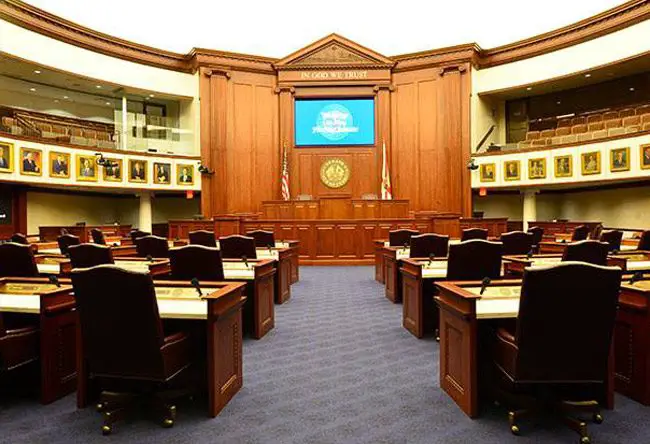
The House and Senate are on track to start budget negotiations with a gap of $2 billion in their proposals, providing fresh reasons for skepticism that lawmakers will complete a spending plan by the scheduled May 5 end of the legislative session.
The Senate on Thursday published an initial draft of its budget that would spend $83.2 billion in the year that begins July 1. Shortly afterward, House leaders announced that their spending plan would check in around $81.2 billion.
That could set up a collision course between the two chambers, which will have to decide how much to spend before the smaller details of how to divvy up the money can be hammered out by negotiating committees.
House and Senate budget-writing panels are expected to vote next week on the competing budget plans, which come as state finances are expected to weaken in future years.
The state is projecting a small surplus in the fiscal year that starts July 1, followed by a $1.3 billion shortfall the following year and a $1.9 billion hole the year after that.
One of the few new details in the Senate plan unveiled Thursday was the outline of a long-promised increase in pay for state workers. The proposal would provide $219.7 million in raises for employees. Most workers making up to $40,000 a year would get a $1,400 raise, with an increase of $1,000 for those making more.
Some workers, including front-line corrections officers and judges, would get larger pay increases. State law-enforcement officers would see their paychecks increase by 5 percent; assistant public defenders with at least three years of experience would receive a 6 percent hike.
“For far too long, the honorable and dedicated state employees who guard prisons, protect our highways, care for abused and neglected children, and who provide many other critical government services, have gone without an increase in their pay,” said Senate Appropriations Chairman Jack Latvala, a Clearwater Republican who has made raises one of his priorities. “The Senate budget makes it clear that we value the contributions these public servants make to our state.”
House leaders focused on the future impact of their plan, which they said would turn the shortfalls in future years into surpluses. House Appropriations Chairman Carlos Trujillo, R-Miami, underscored a decision to slash about a quarter of $700 million of budget projects that were wedged into spending plans by past lawmakers and draw on year-after-year funding.
“For the first time in at least my time up here, we’ve gone after recurring projects and member projects and have eliminated a substantial amount of them,” he said.
But many of those ideas seem destined to run into opposition in the Senate. The House would slash the budgets of colleges and universities, despite Senate President Joe Negron’s focus on boosting higher education in the state. Cuts in health care are also likely to prove controversial in the upper chamber.
And the House and Senate remain divided by whether to roll back school property-tax rates to make sure homeowners don’t face larger tax bills even if the value of their properties increase.
The House is expected to publish its full budget Friday.
–Brandon Larrabee, News Service of Florida






























Leave a Reply